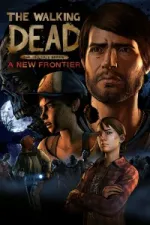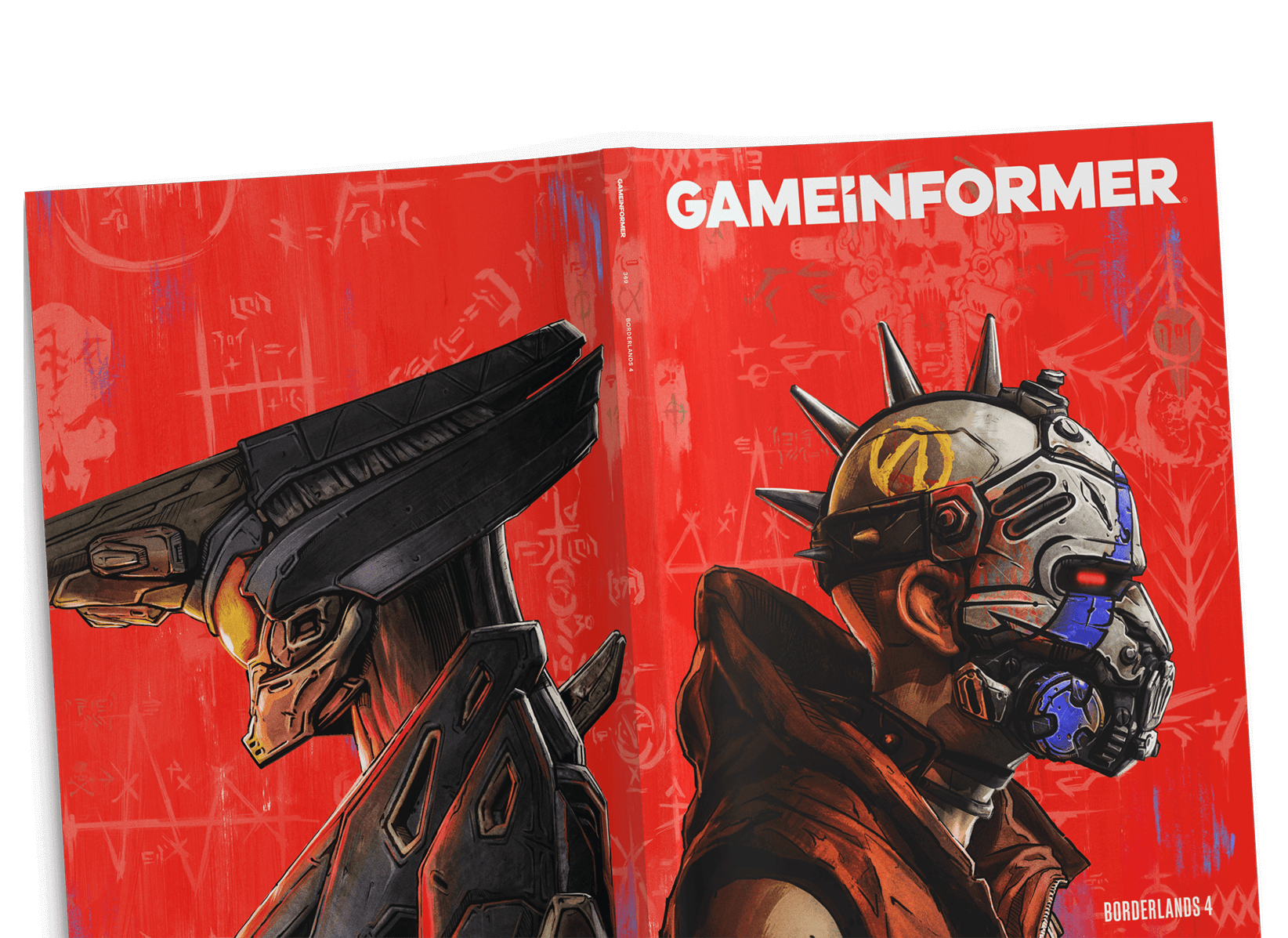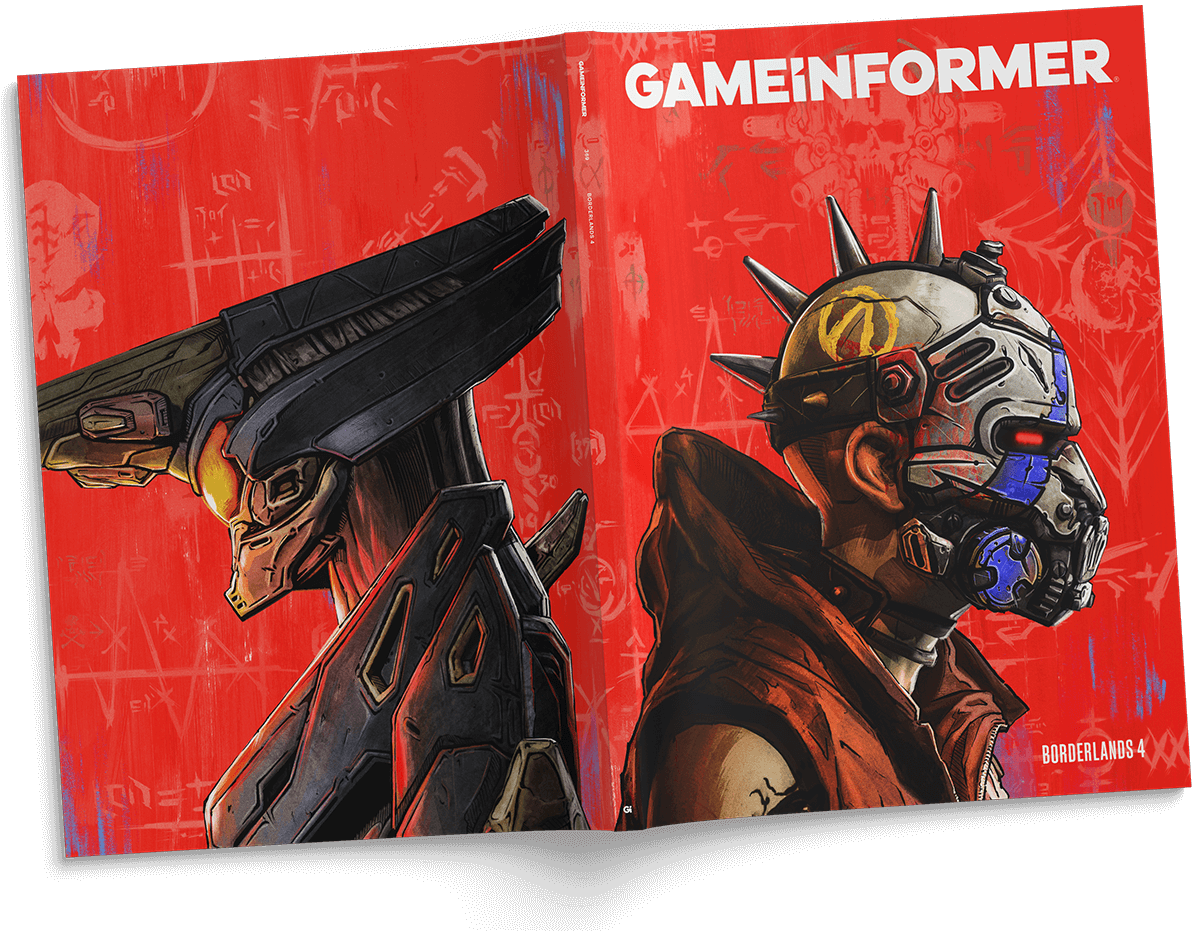Be the first to get Game Informer’s August Issue! Subscribe Now
The Walking Dead - A New Frontier: Season Three Review

The first season of The Walking Dead set a high bar. Lee and Clementine's adventure was an emotional roller coaster. Telltale's approach felt new and exciting, packed with tough choices and a focus on characters and story. Season two made an interesting shift by putting Clementine in the spotlight, giving us the perspective of a young girl. In season three, we step into the shoes of Javier, a completely new character who crosses paths with Clementine. The result is mixed; on the one hand, the season's focus on a family and what it means in this dark world is intriguing, but it is also brought down by recycled plot lines and inconsistent writing.
We've reached new settlements, met corrupt leaders, and watched alliances break over the course of this series. Seeing these threads surface repeatedly makes them less surprising and intriguing with each iteration, and this problem shows the most in season three. Javier feels like a protagonist we've seen before – a man with a troubled past and a heart of a gold. Even his brother David, a hothead who's struggling to control his temper, reminds me of past characters like Kenny. The story also hits similar notes. Rival groups cause you distress, allies betray you, and you must choose between protecting those you love versus doing what's best for the greater good.
Clementine offers the most interesting development, as a lot has changed since we last saw her. Season two ended with Clementine being in different places depending on your choices. Sadly, season three doesn't factor much of those previous decisions into the narrative, which is disappointing. You get some flashbacks to see what happened to her since, but they aren't satisfying because they don't consider your past choices. Clementine's experiences have hardened her, which is a nice change of pace. Season three deals with her growing up and learning to accept others, even tackling puberty. Not many games let you watch a character grow up before your eyes, and I've enjoyed seeing her development. That being said, it feels like Telltale relies on her too much to keep things entertaining. She's a beloved character, but her overuse is making her lose some of her appeal.
Overall, the season still had some engrossing moments, and at times it captured what made me fall in love with The Walking Dead in the first place. Episode four evoked these familiar feelings the most with its crazy choices and unexpected outcomes. I also enjoyed seeing Javier's complicated relationship with his brother unfold, even though David gets a little over-the-top in the finale. Watching teenager Gabe mature and get more resourceful is also a highlight, alongside his crush on Clementine.
Telltale factors your choices into the story much better than in previous Walking Dead seasons. I ran two different save files during my playthroughs, and was pleased to see variations in the characters, dialogue, and options depending on my decisions. That being said, these are only minor changes in the main arc, leaving plenty of room for improvement. For instance, some seemingly life-or-death choices are less important than they appear. If you forgo getting certain information, you still can get it later down the line. The writing between the various choices is also uneven. I saw many paths that were much stronger than their counterparts, especially when dealing with certain allies' final moments. The greatest moments are when Telltale let me decide via dialogue choices how I wanted to build my relationships, which meant I always stayed loyal to Clementine, tried to be a good role model to Gabe, and pursued a romantic relationship with Kate.
Telltale continues to make the story the main draw, only inserting brief action sequences where they need to be. Gone are the days of searching the environments for hard-to-find items. Most sequences come down to QTEs or clicking on an object to advance the plot. The QTEs are getting better and more meaningful. Two in particular stand out for me this season, and both involve letting the player decide how far they want to go with brute force. I like that these sequences never overstay their welcome - something Telltale has struggled with in the past.
I am satisfied by season three's outcome, but it doesn't leave a lasting mark. Part of it feels like this is just a side story in Clementine's larger arc; it moves her story forward by filling in some blanks, which is great if you've been following and enjoy her character. The season ends reinforcing that Clementine's story is far from over. I have mixed feelings about this. She is a cool character, but this season had a lot of déjà vu, and I hope Telltale is able to do new things with her. Even so, the season still has its tense moments and interesting relationships that make it worth playing, but going forward, Telltale needs to reinvent the series to make it feel unpredictable and gripping again. Right now, it just feels like more of the same.














